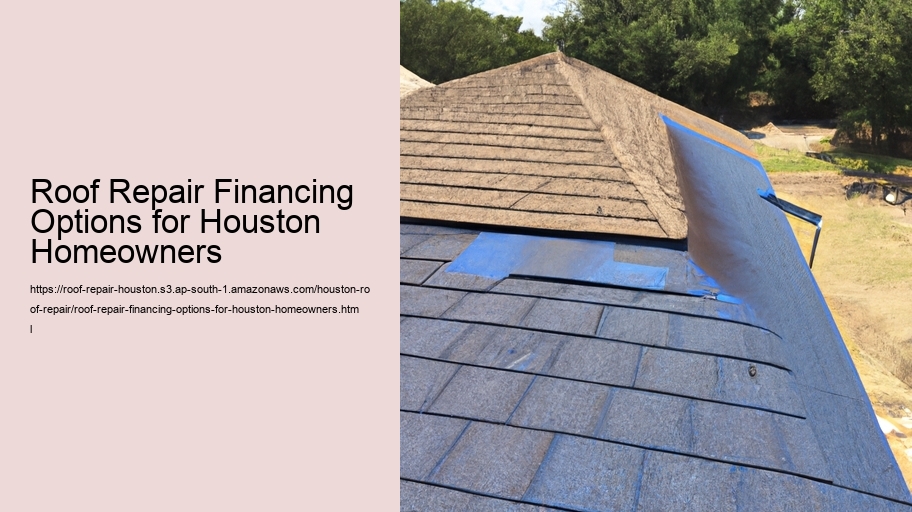When the roof over your head starts showing signs of wear and tear, or worse, begins to leak, it's a clear signal that repair or replacement can no longer be put on hold. For homeowners in Houston where weather conditions like heat, humidity, and occasional severe storms can take their toll on roofing materials, maintaining the integrity of your roof is essential. However, not everyone has the ready funds to cover such repairs out-of-pocket. This is where roof repair financing options become invaluable. In this essay, we'll explore various methods Houston homeowners can utilize to finance their roof repairs in a way that doesn't break the bank.
Firstly, let’s consider personal savings – often the first go-to solution for many homeowners faced with unexpected home repairs. While using savings means you won’t accumulate debt or interest charges, it also might deplete resources set aside for emergencies. If your savings are insufficient for a total fix but could cover a portion of it, partial self-financing could be an option when combined with other financing methods.
Another readily accessible option for many is credit cards. Credit cards offer an immediate source of funds and may come with benefits such as rewards points or cashback offers. However, due to typically high-interest rates associated with credit cards, they're best used if you're confident you can pay off the balance quickly to avoid accruing significant interest charges.
Personal loans present another viable path for securing roof repair financing. These fixed-rate installment loans provide funds upfront with consistent monthly payments over a set term—usually two to five years—and are available through banks, credit unions, and online lenders. The advantage here lies in potentially lower interest rates than those offered by credit cards and without needing home equity as collateral.
Homeowners with substantial equity in their homes might consider tapping into it through a Home Equity Line of Credit (HELOC) or Home Equity Loan (often referred to as a second mortgage). A HELOC works similarly to a credit card where you draw money as needed up to a certain limit during the “draw period,” usually 5-10 years. The repayment period follows after this draw period ends. On the other hand, Home Equity Loans give you all the money upfront with fixed repayments over time. Both options generally have lower interest rates compared to personal loans and credit cards but do put your home at risk if you default on payments since they use your house as collateral.
For individuals above 62 owning substantial home equity and seeking financing without monthly repayments while living in their house, reverse mortgages could be considered—though these are complex financial products requiring careful consideration and guidance from financial advisors specializing in such instruments.
Houston residents may also look into government-backed loan programs aimed at helping homeowners finance necessary repairs or improvements. For instance, programs like FHA Title I Property Improvement Loans assist qualified borrowers who lack ample equity; these loans cap at $25k for single-family homes ensuring essential non-luxury upgrades can be financed.
Moreover, some local businesses offering roofing services provide tailored financing plans directly through partnerships with finance companies or banks; these can span promotional deals like zero-interest periods if paid within a specific timeframe or low-interest rate plans extended over several years.
Lastly yet importantly is insurance coverage which should never be overlooked—if your roof damage is due to factors covered by your homeowner's insurance policy (like hail or wind damage), then filing an insurance claim might significantly reduce out-of-pocket expenses.
In conclusion, numerous avenues exist for Houston homeowners looking to finance their roof repairs—from savings accounts and personal credits lines to various loan types tailored towards property improvement projects; each carries its pros and cons depending on individual circumstances including urgency of repair needs against fiscal health status quo alongside long-term financial strategies being pursued concurrently by households concerned thereby warranting thorough research plus possible consultation from financial experts before proceeding towards any one particular option outright so as ensure best possible outcomes both structurally speaking regarding dwelling overhead plus economically relative household bottom line going forward post-repairs completion therein.
